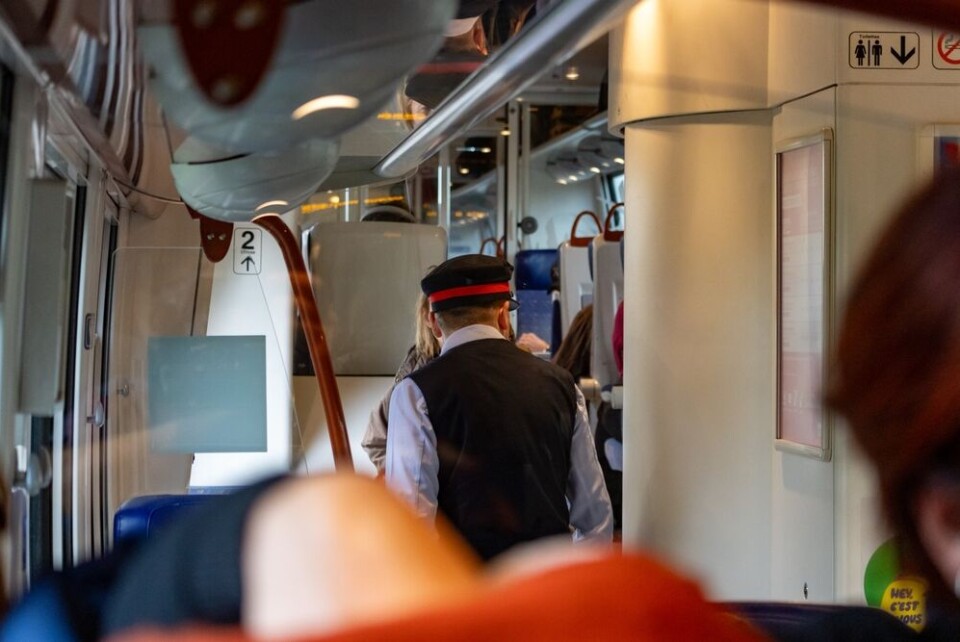-
Death of far-right militant in Lyon sparks fears of further political violence
Quentin D, 23, died after reportedly being ambushed by far-left activists near site of political conference
-
Red flood alerts continue in south-west - and more heavy rain expected
Garonne river is particularly affected. French weekly weather forecast February 16 - 20
-
Car insurance fees set to rise - tips on how to make savings
Premiums are forecast to rise by four to six percent in 2026
French half-term train strikes: half of TGVs cancelled
Up to 90% of ticket inspectors will take part

Two of France’s largest unions have committed to strike action this weekend (February 16 to 18), which is set to bring disruption to people travelling during the school holiday period.
Between 70% and 90% of ticket inspectors (contrôleurs) belonging to the CGT and Sud-Rail unions are set to join.
On Wednesday afternoon the SNCF announced that only half of all high-speed TGV – both InOui and Ouigo – services across the weekend would run, as well as only half of Intercités trains.
This includes a cancellation of around half of the overnight services.
International TGV routes to Spain, Italy, Switzerland and elsewhere may also be affected, but local regional TER services will mostly run as normal.
CEO of the SNCF Jean-Pierre Farandou said that ‘winter break’ destinations will be prioritised to minimise the impact on families travelling for holidays, and all trains to and from the Alps will run.
Travellers whose trains are impacted should be notified of changes via text message or email today (February 14), the SNCF said, with information of route cancellations being made available by the end of the day.
Everyone travelling over the weekend, including those on local services, is also urged to check their journey information on the SNCF Connect website or application, to ensure there have been no changes.
Which services will be most affected?
The main group of workers striking are contrôleurs – ticket inspectors who also act as a point of contact for travellers on high-speed trains.
Unlike regional TER services, which do not necessarily require inspectors on board, high-speed services need at least one inspector.
Services with longer travel time or more carriages require multiple inspectors on the train.
Mr Farandou said that one inspector working roughly equates to an additional 500 people being able to travel on a train.
However, the SNCF said it is doing as much as possible to ensure services travelling to and from winter holiday destinations will be made the priority.
It also announced that their ‘Junior et Compagnie’ service, where workers look after unaccompanied children travelling on trains (usually between their homes and holiday camps) would be '85%' maintained.
School Zone A (Bourgogne-Franche-Comté, Auvergne-Rhône-Alpes, and Nouvelle-Aquitaine) saw holidays begin on February 10, and school Zone C (Île-de-France and Occitanie) begin their winter break on February 17.
It is likely services in these areas will be prioritised.
Read more: MAP: French school holidays 2023-24 by region
What are workers striking over?
The unions say they are unsatisfied with the progress made since their last major independent strikes at the end of 2022, which impacted millions of travellers over the Christmas period.
The SNCF promised a number of measures, including hiring more workers, a one-off bonus for inspectors, and thousands of promotions. They also want a pay-rise in the fact of inflation.
These have been implemented either too slowly or not at all according to the unions, who want concrete measures to be put in place. Mr Farandou said however the agreements are "87% in place... and 100% will be by 2025."
Estimates vary over the average salary of a ticket inspector, but media outlet TF1 claims the average pre-tax salary for one is €2,900 per month. For the most experienced, this can rise to €4,400.
One worker said they earn around €1,900 per month before taxes despite being an inspector for 24 years, but admitted they gain an extra €1,000 or so monthly from working 'shift patterns' and on weekend.
Prime Minister Gabriel Attal said workers had "a right to strike" but also needed to "accept their duty" during the busy holiday period.
Are refunds available?
If your high-speed train has been cancelled, you are usually informed two days in advance by email or text unless the cancellation is caused by changes at a later date.
Tickets for services cancelled due to strike action are 100% refundable, or can be moved to a later date free of charge provided the new ticket is not more expensive than the original.
You can request a refund via the SNCF Connect website or application, by calling 36 35, or by visiting a ticket desk in-person at a station.
If you bought your ticket through a third-party, you may also be able to request a refund through them, but note that they may charge processing fees.
Related articles
Travel: How to be reimbursed if affected by strike action in France
Depot blockades and fuel shortages in Brittany - latest info
























